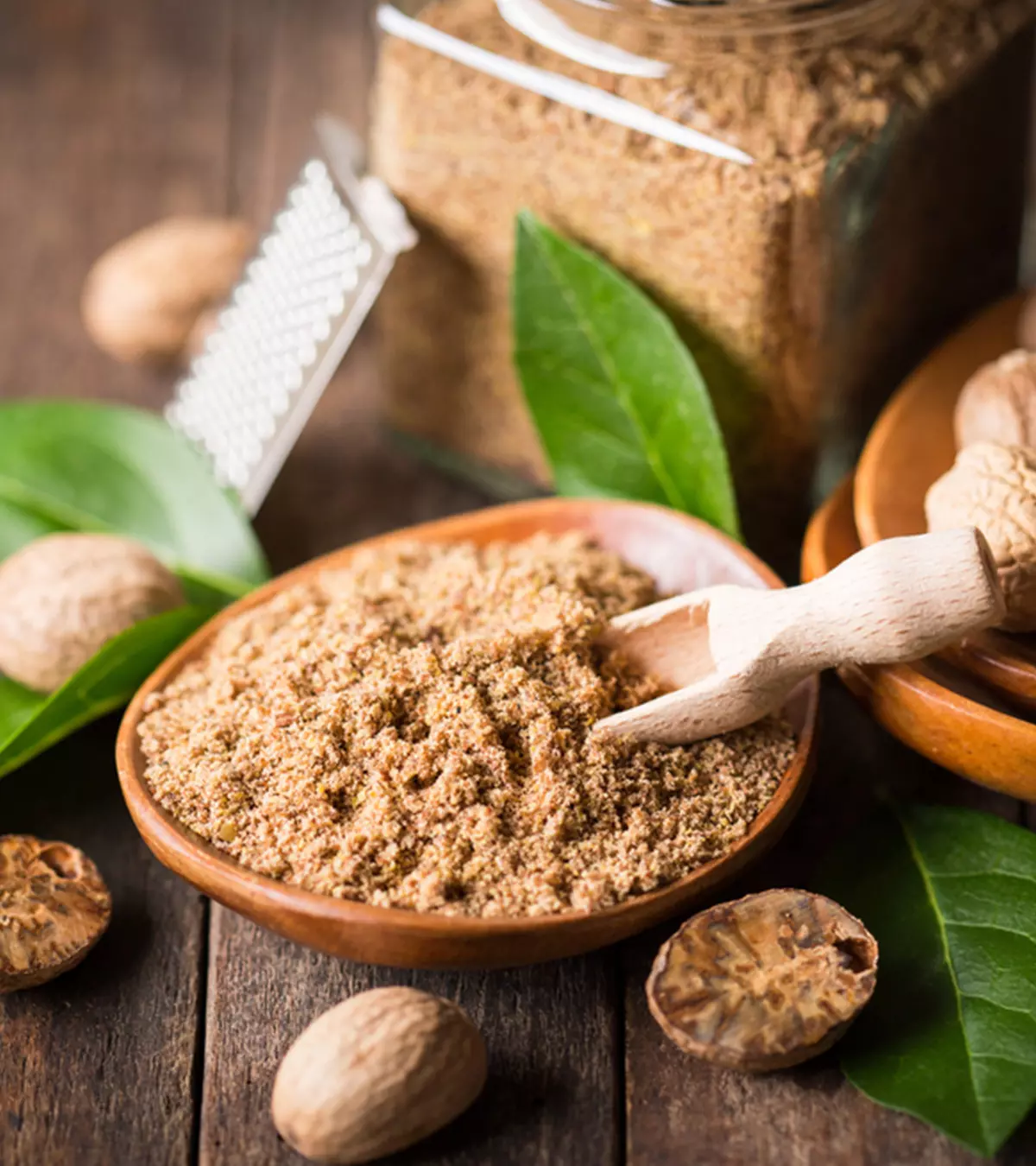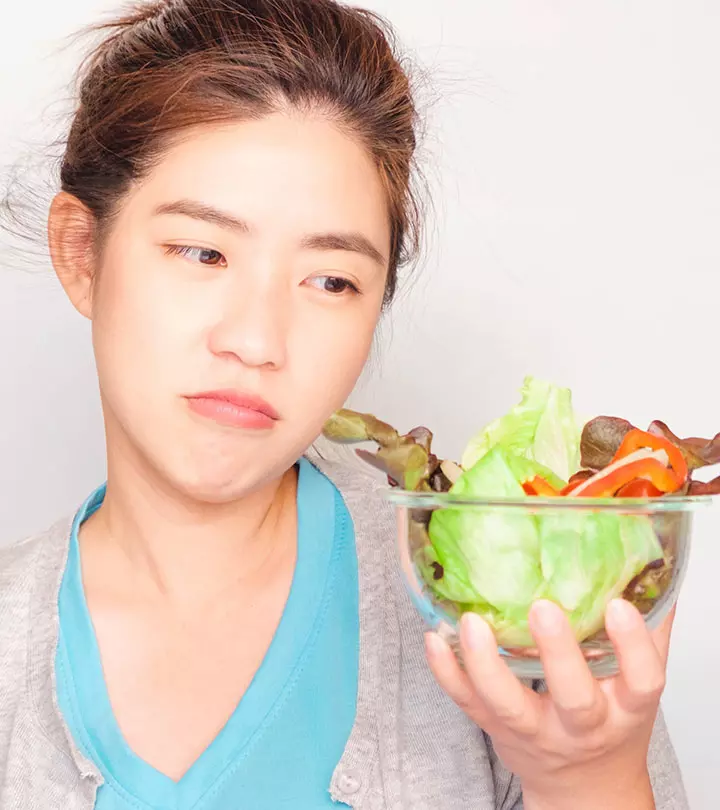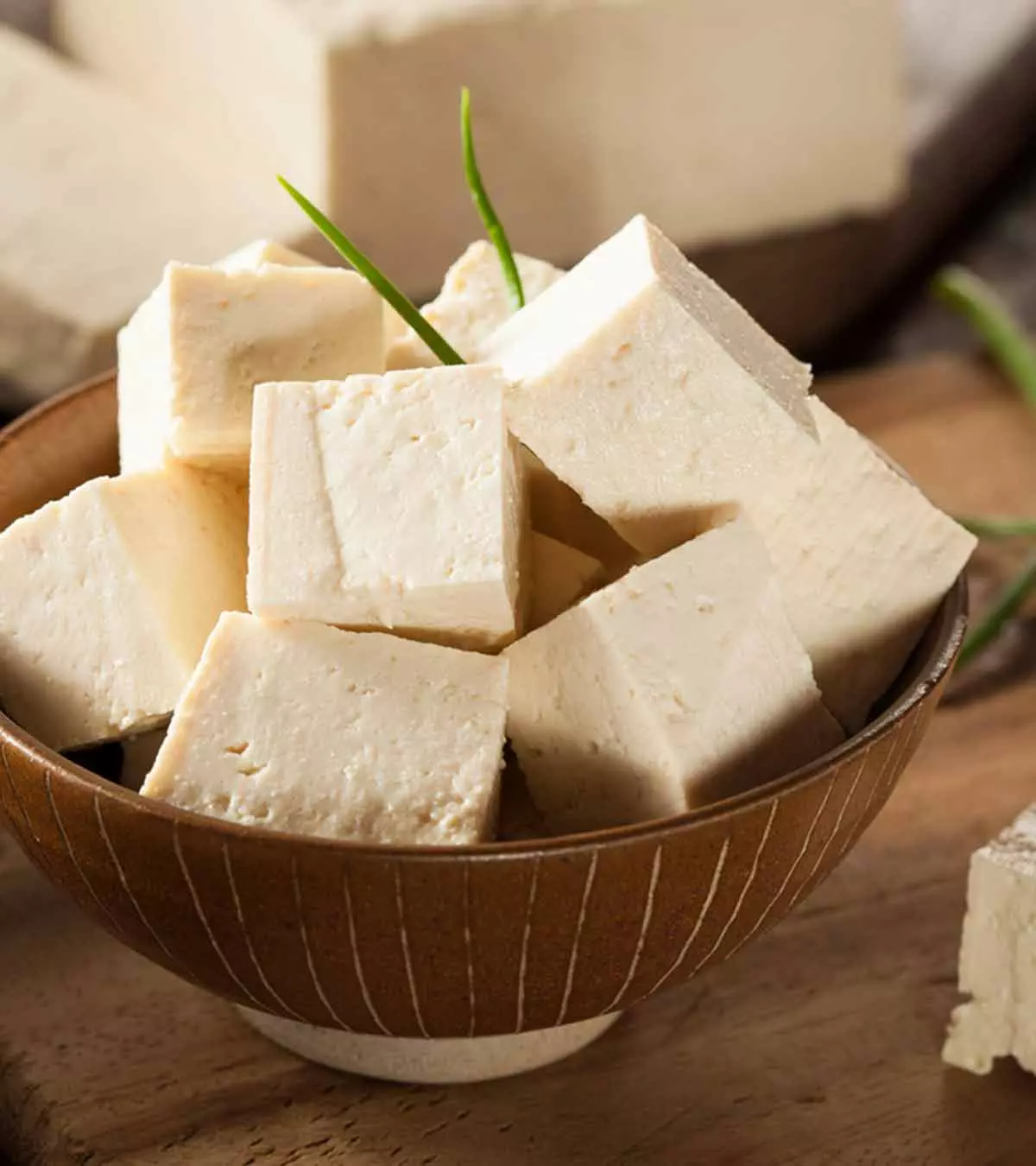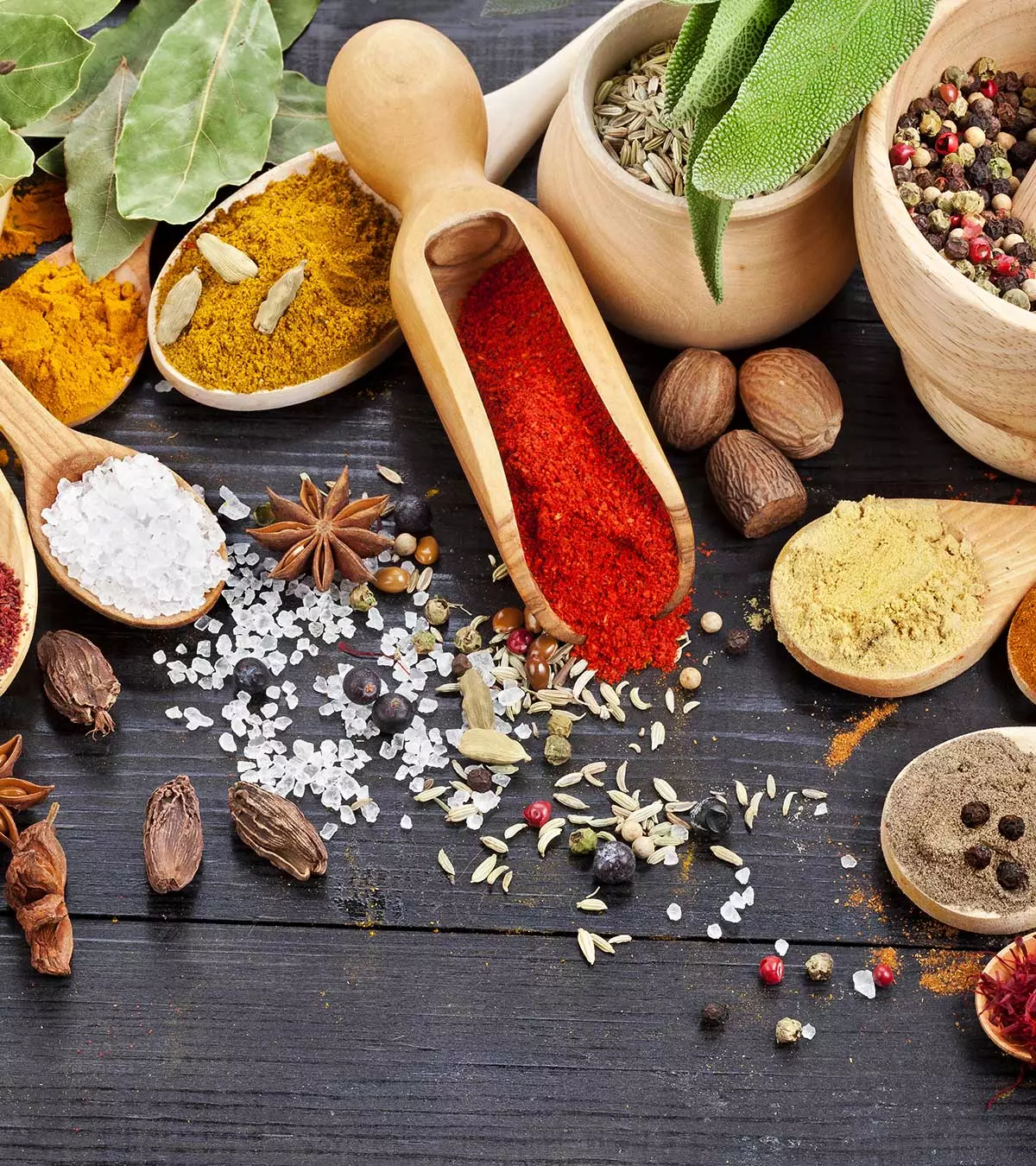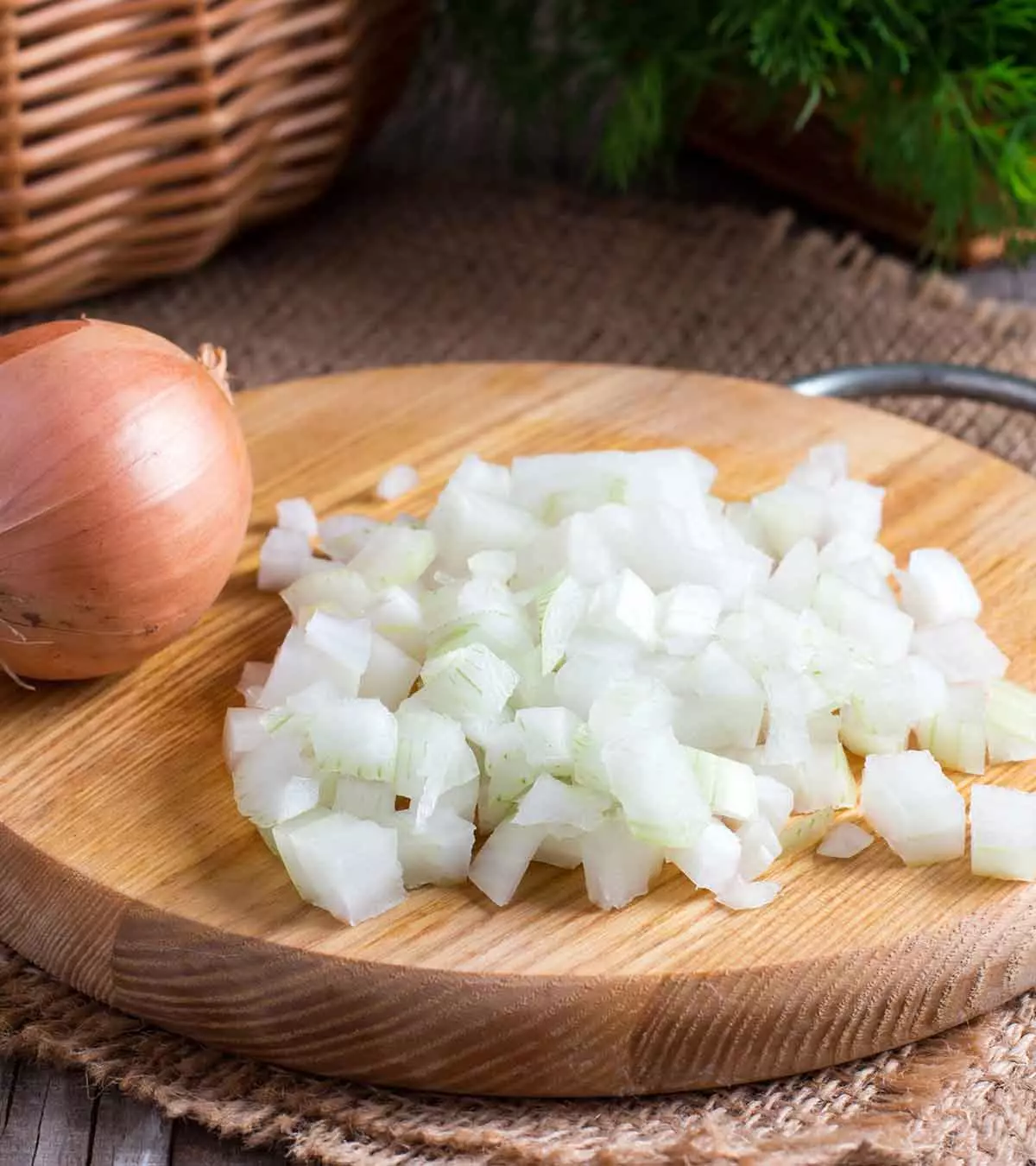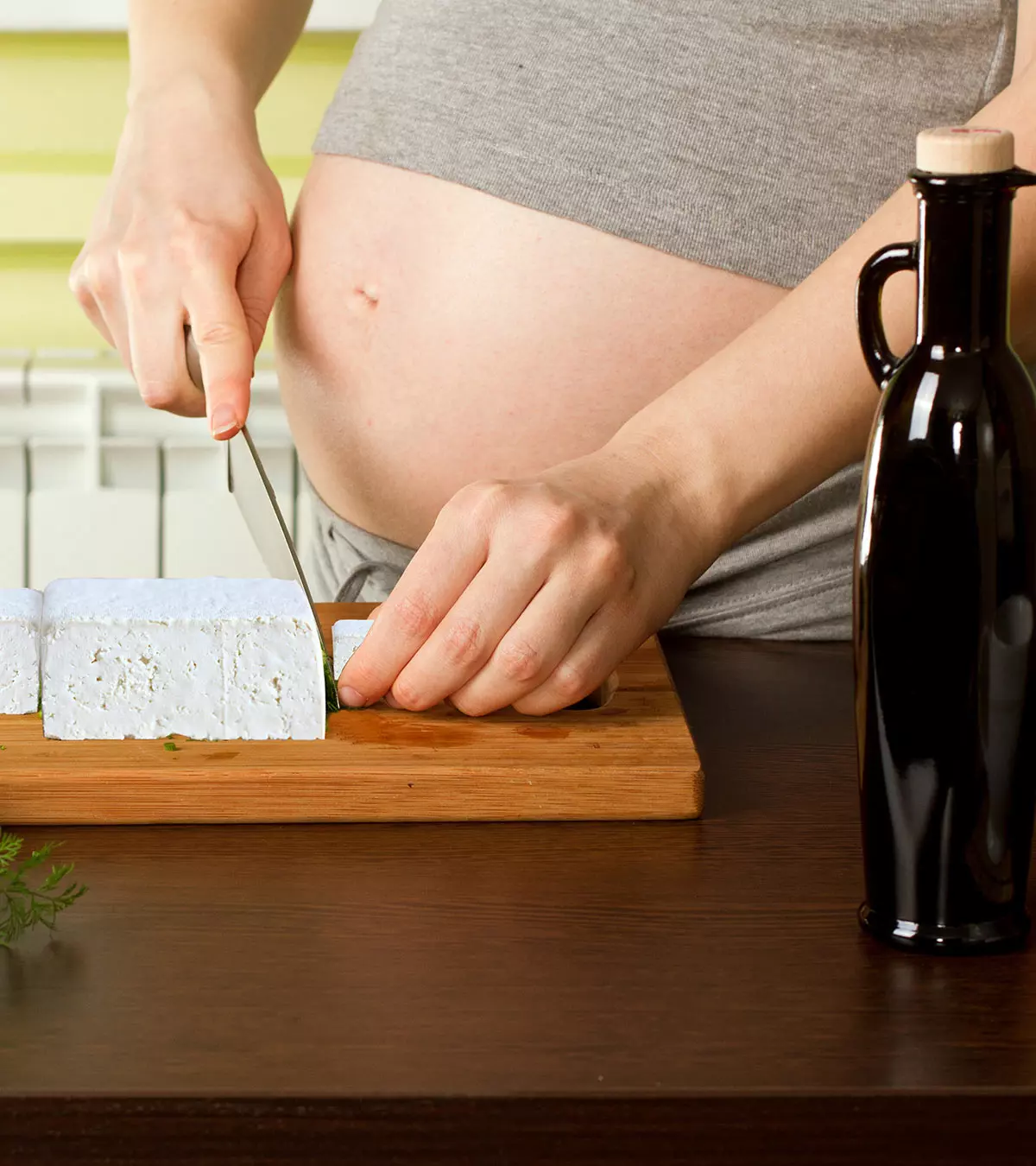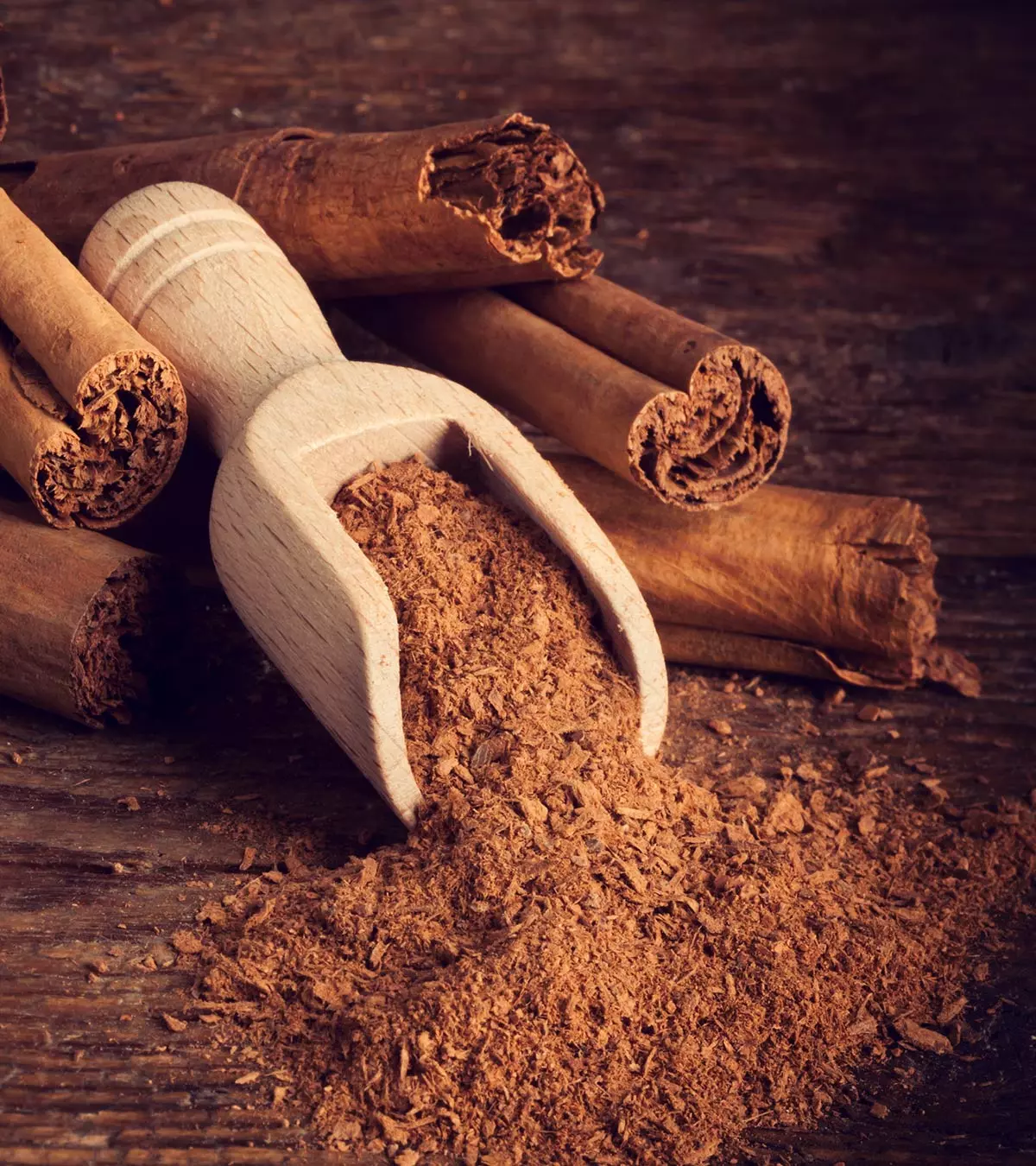
Image: iStock
Cinnamon is a popular spice known for its delectable flavor and a pleasant aroma. The spice is also known for its anti-inflammatory, anti-microbial, anti-oxidant, and anti-diabetic properties (1). Many women enjoy having this spice, but is it safe to eat cinnamon during pregnancy?

Read on as we tell you about the safety, side effects, and benefits of having cinnamon during pregnancy.
Key Pointers
- Cinnamon in moderate amounts is safe during pregnancy. However, excess intake may trigger some adverse effects.
- Pregnant women can benefit from cinnamon since it may reduce nausea, blood pressure, and gestational diabetesiA temporary condition in which a woman is diagnosed with diabetes for the first time during pregnancy provided it is taken in limited amounts.
- You may use cinnamon to temper recipes, season desserts, and add flavor to other food items.
Is Cinnamon Safe During Pregnancy?
Dr. Ila Dayananda, a board-certified obstetrician/gynecologist from Brooklyn, New York, says, “It’s generally safe to consume moderate amounts of cinnamon in food during pregnancy. However, be cautious with excessive amounts or large doses of cinnamon or its supplements, as they may pose potential risks. While cinnamon has been suggested to have uterine-stimulating properties, the evidence for its ability to soften the cervix is limited, and its effectiveness is not well-established.”
Cinnamon is safe during pregnancy, regardless of which trimester you are in, as long as it is consumed in controlled amounts. For instance, you can use cinnamon as a flavoring agent to your beverage or dessert. But if you are adding too much to your recipes or taking a high amount of cinnamon bark or cinnamon essential oil, it could lead to some adverse effects (2).
 Experts say
Experts sayHow Much Cinnamon Is Considered Safe When Pregnant?
One to six grams of cinnamon a day is considered safe for adults. However, there is no such daily recommended quantity given for pregnant women that may impact their maternal nutrition. Hence, it is suggested to take less than the normal permissible limits after consulting your doctor (3).
What Are The Health Benefits Of Cinnamon For Pregnant Women?
Here we can see what cinnamon in less quantity can do in pregnancy:
- Gestational diabetes: Certain studies have shown that cinnamon could potentially reduce the insulin requirements for women with gestational diabetes (3). However, this subject is still under clinical trials and needs further research to validate the claim.

- Blood pressure: High blood pressure or hypertension during gestation is not uncommon. Unless there is a medical condition causing fluctuation in blood pressure, it is fairly manageable. A report from the US Centres for Disease Control and Prevention (CDC) states that at least one in seven births is affected by hypertension problems during pregnancy. Also, 13% of pregnant women in the US developed hypertension in 2019. Cinnamon has some favorable effects on lowering the blood pressure, provided it is taken in a limited amount (4).
 Point to consider
Point to consider- Nausea: Nausea and vomiting, commonly known as morning sickness, are the most common symptoms of pregnancy. Cinnamon used in certain formulations may have some relieving effects on these issues (5). As cinnamon-based treatment is based on folklore, there isn’t a set dose. Some experts suggest two to four grams of powder a day. Some studies have used between one and six grams of cinnamon. Very high doses might be toxic.
- Digestion: Cinnamon may enhance metabolic syndrome and help maintain a healthy metabolism. It also holds gas-relieving properties and could be beneficial in soothing an upset stomach, aiding digestion, treating diarrhea, and alleviating heartburn. It also contains compounds that may help reduce gut inflammation and improve the beneficial gut bacteria balance.
Although cinnamon is rich in antioxidants and known for its anti-bacterial and anti-inflammatory properties, a few studies do not recommend it for expecting mothers. As a result, it is essential to exercise caution.
What Are The Various Ways To Use Cinnamon?
High amount of cinnamon is not advised for pregnant women but you may have it in small quantities as part of your prenatal diet (6):
- Drink cinnamon tea (however, not daily) where the cinnamon stick can be used as a flavoring agent. You may also add a pinch of cinnamon powder to your decaffeinated coffee for a burst of flavor.

- Use a pinch of cinnamon powder for seasoning desserts and baking yummy goodies such as muffins or whole-grain breads.
- Cinnamon is commonly used in cooking as an aromatic spice for tempering recipes.
 Quick tip
Quick tipDo not miss out on the precautions before you head to relish the flavor of this spice.
What Are The Precautions To Follow While Taking Cinnamon?
Some aspects that you need to be careful about are:
- Avoid cinnamon oil in pregnancy because the safe dosage is not known. High doses may cause burning sensation. Also there are concerns of passing the toxicity to the fetus, which might even affect the fetal growth and development (7).
- If you are at a high risk of miscarriage, then avoid cinnamon.
- Do not consume if you have cinnamon allergies or sensitivities.
- Pregnant women with obstetric disordersiMedical conditions linked to pregnancy that may affect the expecting mother or the developing fetus need to avoid cinnamon.
- Buy the best quality cinnamon sticks or powder to prevent any harmful additives.
However, every pregnancy is different and so is the recommendation for use. If you are uncertain about using cinnamon, seek a consultation with an alternative medicine expert or a certified dietician.
What Are The Side Effects Of Cinnamon During Pregnancy?
When cinnamon is taken in exceeding limits, the following side-effects can be experienced.
- Cinnamon when taken in high doses works as an emmenagogueiHerbs that may increase blood flow to the pelvic area and organs and stimulate menstruation and can potentially increase the risk of premature labor or uterine contractions during pregnancy (8).
- If you are taking antibiotics or any medications for medical conditions such as diabetes or heart ailments, then avoid cinnamon as it is known to have a blood-thinning effect. This might result in excessive bleeding.
- Avoid taking cinnamon in supplement form. It could possibly lead to certain risks such as excessive perspiration, stomach disorders, increased heart rate, and fallen blood sugar levels (9).

Frequently Asked Questions
1. Can cinnamon cause miscarriage?
Although there is no definitive evidence of cinnamon toxicity during pregnancy, a few studies noted cinnamon overdose might be associated with an aborted pregnancy. Therefore, you may avoid eating cinnamon in excess and consume it in moderation during pregnancy (10).
2. Can a pregnant woman drink cinnamon and warm milk?
Drinking milk and cinnamon (in moderate quantities) is generally considered safe in pregnancy. You may speak to your Ob/Gyn if you are having cinnamon mixed with milk for the first time during pregnancy.
3. Can cinnamon cause any harm to the developing fetus during pregnancy?
Small-scale research has highlighted the negative effect of cinnamon consumption on the developing fetus, causing fetal malformations (11). However, more research will be necessary before validating this claim.
4. Can cinnamon prevent or treat urinary tract infections during pregnancy?
Limited evidence indicates the usage of cinnamon as a health-promoting agent for treating various illnesses, including urinary tract infections (12). However, its evidence with regard to pregnant women is inadequate; therefore, requiring more research in this field.
5. Does consuming cinnamon during pregnancy affect the risk of developing preeclampsia?
No evidence suggests that consuming cinnamon may affect the risk of developing preeclampsia in pregnancy. You should speak to your doctor if you are diagnosed with high blood pressure and take prescribed medications.
6. Can cinnamon help with postpartum recovery?
According to a study, cinnamon-based ointments helped reduce perineal pain and supported postpartum healing (13). However, more research is needed to confirm these benefits and establish safe dosing guidelines.
Cinnamon during pregnancy should be consumed in a measured manner. It is best to take a nutritionist’s advice to understand the right quantity that can be taken. However, you must ensure to limit the use of cinnamon to flavoring or seasoning overall to cut down its consumption gradually. But if you figure out that even less quantity of cinnamon is not working for you or causing you concern, then it is better to avoid it completely until delivery.
Infographic: Pregnancy-Safe Cinnamon Recipes For Expecting Mothers
Cinnamon is a flavorful herb that can impart several health benefits to expecting mothers. Our infographic shares easy-to-prepare, healthy cinnamon recipes moms-to-be can enjoy eating as a part of their well-balanced pregnancy diet. Check out these recipes and share them with other expecting moms who share your love for cinnamon! Illustration: Momjunction Design Team
Illustration: Is It Safe To Consume Cinnamon (Dalchini) During Pregnancy?
_during_pregnancy_illustration.jpg.webp)
Image: Dall·E/MomJunction Design Team
Learn everything you need to know about cinnamon consumption during pregnancy and make informed decisions for your health.
References
1. P. V. Rao and S. H. Gan; Cinnamon: A Multifaceted Medicinal Plant; Evidence-Based Complementary and Alternative Medicine (2014)
2. G. Bruno; Cinnamon: A Supplement for Diabetes, Body Composition, Cardiovascular Health & Antioxidant Protection; Huntington College of Health Sciences (2009)
3. G. Graham, E. B. Johnson, A. Johnson, R. Anderson, and P. Devine; Cinnamon for glycemic control in gestational diabetes: A randomized double-blind placebo controlled pilot study; American Journal of Obstetrics & Gynecology (2005)
4. Akilen R et al., Effect of short-term administration of cinnamon on blood pressure in patients with prediabetes and type 2 diabetes (2013)
5. E. Yarnell; The medicinal uses of cinnamon; Integrative Medicine (2010)
6. J. Liu; Is Cinnamon Good For You?; The Whole U University of Washington (2016)
7. Cinnamon; Health Library: Winchester Hospital
8. Inducing a Menstrual Period Naturally with Emmenagogue Foods & Herbs; Health with Food
9. Jeanna Morshead-Metelica; THE IMPACT OF CINNAMON ON GLUCOSE LEVELS AND ALCOHOL CRAVINGS IN EARLY RECOVERY; University of Wisconsin (2012)
10. Ahmad M. Eid and Nidal Jaradat; Public Knowledge, Attitude, and Practice on Herbal Remedies Used During Pregnancy and Lactation in West Bank Palestine; frontiers in Pharmacology (2025)
11. Mansoor Ahmed et al.; Irrational Use of Selected Herbal Medicines During Pregnancy: A Pharmacoepidemiological Evidence From Yemen; NCBI (2025)
12. Seyed Fazel Nabavi; Antibacterial Effects of Cinnamon: From Farm to Food, Cosmetic and Pharmaceutical Industries; NCBI (2015)
13. Azam Mohammadi et al.; Effects of cinnamon on perineal pain and healing of episiotomy: a randomized placebo-controlled trial; NCBI (2014)
14. The Benefits of Cinnamon; Cleveland Clinic
Community Experiences
Join the conversation and become a part of our nurturing community! Share your stories, experiences, and insights to connect with fellow parents.
Read full bio of Jyoti Benjamin
- Dr. Ila Dayananda, a board-certified obstetrician & gynecologist, most recently served as the chief medical officer for Planned Parenthood of Greater New York. She studied medicine and master's in Public Health at Northwestern University Medical School and then pursued an OB/GYN residency at the Beth Israel Deaconess Medical Center in Boston, MA. Dr. Dayananda holds a Family Planning Fellowship at Brigham and Women's Hospital/Harvard Medical School in Boston, MA.
 Dr. Ila Dayananda, a board-certified obstetrician & gynecologist, most recently served as the chief medical officer for Planned Parenthood of Greater New York. She studied medicine and master's in Public Health at Northwestern University Medical School and then pursued an OB/GYN residency at the Beth Israel Deaconess Medical Center in Boston, MA. Dr. Dayananda holds a Family Planning Fellowship at Brigham and Women's Hospital/Harvard Medical School in Boston, MA.
Dr. Ila Dayananda, a board-certified obstetrician & gynecologist, most recently served as the chief medical officer for Planned Parenthood of Greater New York. She studied medicine and master's in Public Health at Northwestern University Medical School and then pursued an OB/GYN residency at the Beth Israel Deaconess Medical Center in Boston, MA. Dr. Dayananda holds a Family Planning Fellowship at Brigham and Women's Hospital/Harvard Medical School in Boston, MA.
Read full bio of Swati Patwal
Read full bio of Rebecca Malachi
Read full bio of Aneesha Amonz





